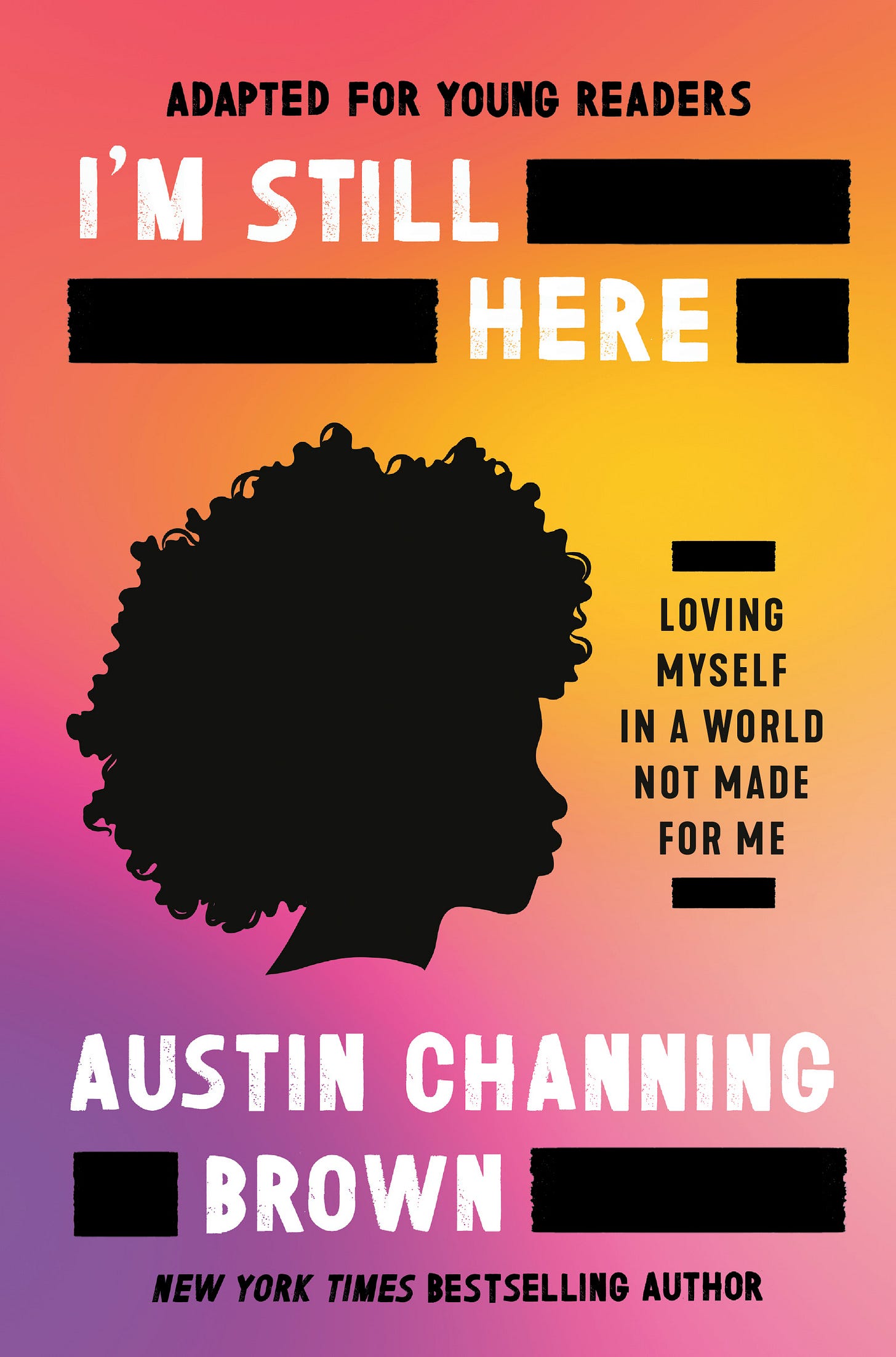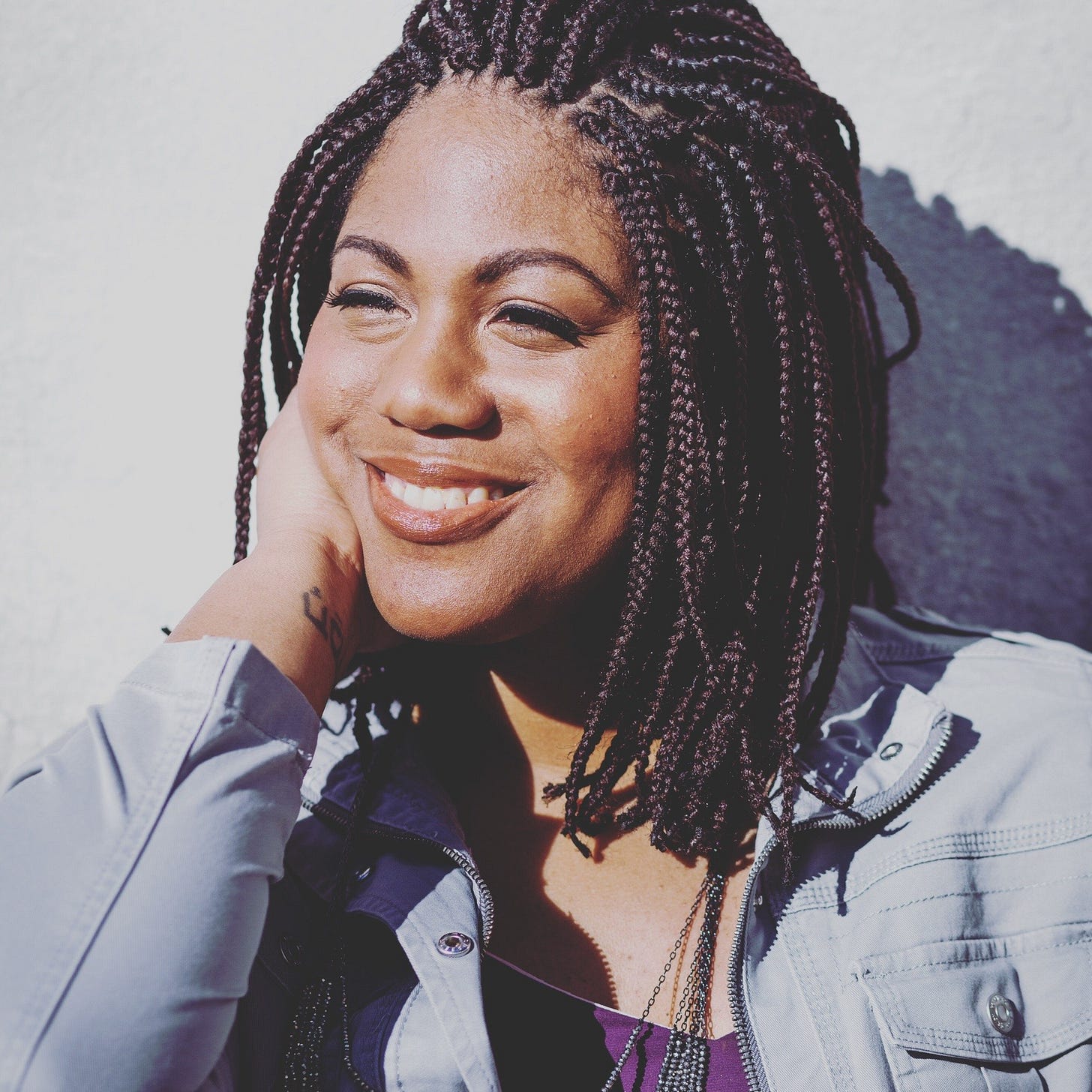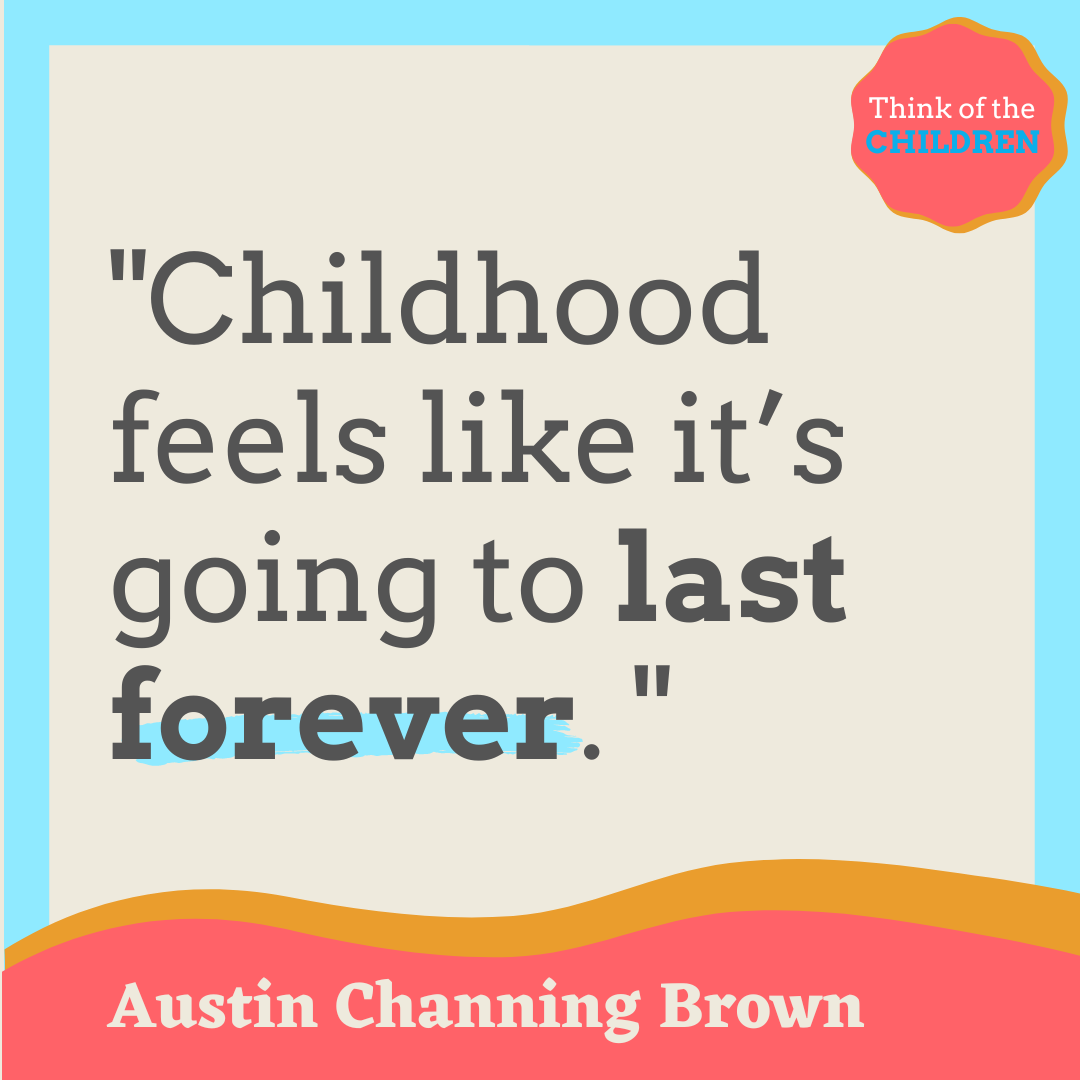The frustrations and joys of a Gen X childhood
In 'I'm Still Here: Loving Myself in a World Not Meant for Me,' Austin Channing Brown reimagines her best-selling book for a younger audience and tells her story with a new intimacy.
Austin Channing Brown is a writer and speaker on anti-racism. Her 2018 book “I'm Still Here: Black Dignity in a World Made for Whiteness,” was a New York Times best-seller and Reese’s Book Club pick. This insightful, moving autobiography has now been updated for a younger audience with “I’m Still Here: Loving Myself In A World Not Meant For Me.” Subscribers can also check out the audio version of this interview.
Author’s note: I was fangirling when I spoke to Austin about her books, because I had the extreme privilege of leading a book study for “I’m Still Here” a couple of years ago at work, and deeply enjoyed the chance to read the book and spend time talking about its lessons with my colleagues. It was such a delight to speak with Austin, and I encourage you to check out this updated version of her writing for any young people in your life!
When you revisited “I’m Still Here” with an eye toward a younger audience, what was important for you to bring out or to highlight?
The question often gets raised, When should you start talking to kids about race? And people of color know that the answer to that is immediately. As people of color, we don’t have much of a choice about whether we’re going to talk to our kids about race.
A lot of work in the anti-racism space focuses on white people. Those books are good and necessary, but I wanted to write one that was a little different, that really spoke to the experience of being a person of color and how we have to navigate race and racism, so that’s how the young readers’ version came about.
There are a couple stories that are the same, like a story about learning about my name and discovering that my parents named me Austin to confuse people in hopes they would think I was a white man. But there are other stories I didn’t tell in the first book, that range all the way from falling in love for the first time, to my first all-girls group, and it just felt like a real opportunity to be able to talk about how I was thinking about race as a young person as opposed to as an adult.
Thinking about your own experiences as a young person, and thinking about the young people who will be reading this book, is there anything that stands out to you as different — something that has changed for young people since you were a kid?
I think technology is the big one. My story starts with cassette tapes on the radio. In fact, one of the stories I tell is about being on the bus surrounded by black kids and not knowing a really popular song that came on the radio, and I had to record it so that I could play it over and over again. And just the access to information, to satisfy curiosity, to catch up on things that you wouldn’t otherwise know, was very different.
It’s such a double-edged sword, too, that access can be challenging for kids to navigate. Being a kid is always challenging, but it’s tricky when it’s all coming at you through the screen of your device.
I am very grateful that social media did not exist until I was in high school. I am very grateful that I didn’t even have to think about it in junior high, or especially in high school.
I remember when you had to have a college email address to join Facebook! And all of us did not even have personal computers. I remember walking through a lobby where two computers were set up and a young woman had just sat down to check her Facebook and she got up outraged, the chair fell over, and she goes, “I can’t believe he doesn’t have me marked for our relationship status!” And she booked it out of there! And I thought, “Oh my goodness, that is so intense.”
It was the era where we just started posing for photos and things like that, but even then it wasn’t ubiquitous. And the idea of the ubiquity of spending my life, especially high school and junior high, trying to immortalize those years; trying to make them seem fun or interesting or different, is just overwhelming.
I had no sense of fashion. I was always in uniforms. It just would have been so awkward. My parents were divorced so there were a lot of things I didn’t get to attend because I would be gone for the weekend. Just trying to imagine writing my own story for the public, beyond the people I was intimate with, seems impossible. Trying to curate that publicly — God bless them. It’s a lot to navigate when you’re still figuring it out.
If you could go back and say something to young Austin, what would you want her to hear or to know?
When I was a kid, the only thing that I really wanted to be was an adult. I did not enjoy being a kid. I really wanted to make my own decisions, and drive where I wanted to drive, and do what I wanted to do. The highest priority for me was growing up. I just wanted to grow up.
And so I think if I could go back and say anything to her, it would be, You can relax, because you are going to grow up. Childhood feels like it’s going to last forever. I would try to say to her, It’s OK to enjoy this, because you can rest assured that adulthood is coming. You can stay right here and be right here, because it’s coming, I promise.
And it was great! I loved college, it was all so good. But I think I was so busy being mature, and trying to get to adulthood, that there were a lot of rebelliousness and adventures and things that I missed because childhood was beneath me.
I’ve heard a lot of people say that they don’t see as much of that urge to grow up and be mature among a lot of young people today. We all kind of react to the times that we’re in, and I wonder if becoming a grown-up might not look as good to a lot of kids nowadays.
It makes sense, when you think about the world. And, when I think about being Gen X, society was so different then. My parents worked 9 to 5. There was no getting off early, there was no, I need to run and pick up my kids, or work my second half of the day from home. Many of us were latchkey kids, walking into the house ourselves, figuring out dinner. There was a lot about our lives that felt adult, and yet there were so few decisions that went along with it. I think that was a frustrating experience for a lot of people in our generation.
Whereas now parents have a lot more flexibility to be there, to be present, and to treat kids like kids. And I wonder how much of that, on top of their access to the larger world and national conversations and things that I don’t think I was aware of, has created different desires. I have a friend who’s got a teenager, and their teenager has no interest in driving whatsoever. And that is shocking to me — that was all any of us wanted.
If you’re online together all the time, you don’t necessarily need a car to see your friends.
I had my first cell phone at 16, and even then it wasn’t free until after 7. And that was part of wanting to be grown-up, too; we wanted independence. We wanted to be able to leave the house and go to the mall or the movie theater. I remember plenty of times just sitting in a parking lot, because we didn’t care! It was just a matter of being together, out from under our parents.
Thanks so much to Austin for speaking with me! Subscribers can also check out the audio version of our interview here:







